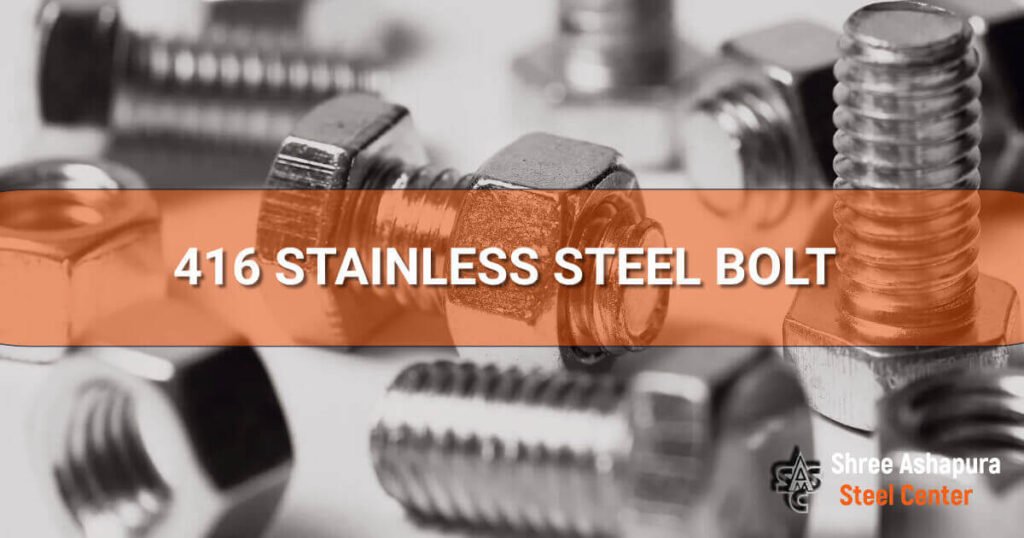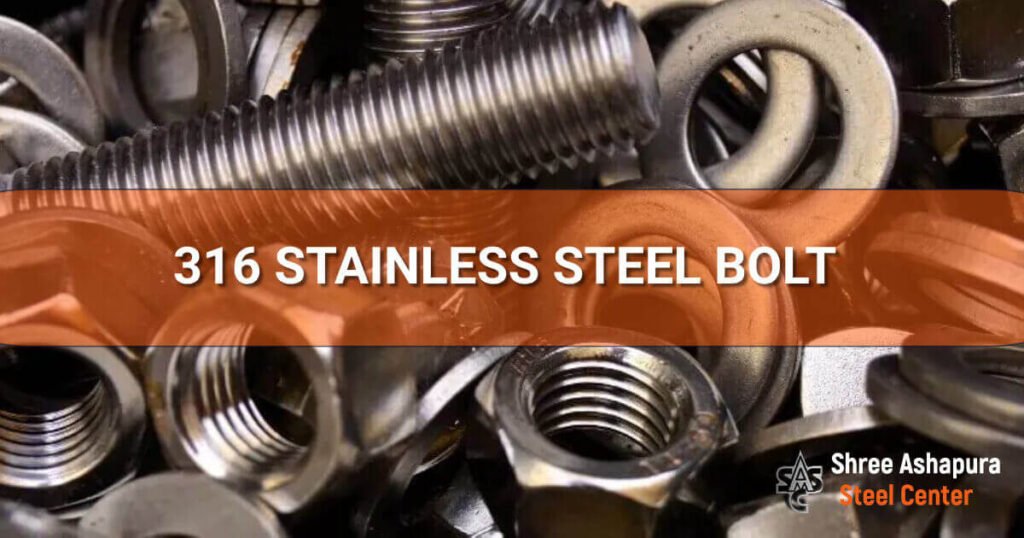What are 416 Stainless Steel Bolts?

416 Stainless Steel Bolt is a martensitic stainless steel grade that is primarily composed of chromium with additional sulfur added to improve machinability. It offers good mechanical properties, including high strength and hardness. The sulfur content promotes chip-breaking during machining, making it an ideal choice for applications that require extensive machining operations. However, it is important to note that the sulfur content reduces its corrosion resistance compared to other stainless steel grades.
What are 316 Stainless Steel Bolts?

The amount of chromium and nickel in 316 stainless steel bolts is higher than in 416 stainless steel. It is renowned for its excellent corrosion resistance, making it suitable for various environments, including marine and chloride-rich environments. Additionally, 316 stainless steel offers superior strength, excellent toughness, and good weldability. This makes it a versatile choice for a wide range of applications, such as construction, food processing, and medical equipment.
Difference Between 416 and 316 Stainless Steel Bolts
| Points | 416 Stainless Steels Bolts | 316 Stainless Steels Bolts |
| 1.Corrosion Resistance | While 416 stainless steel offers moderate corrosion resistance, it is not suitable for marine or highly corrosive environments. It is more prone to surface rust and staining compared to 316 stainless steel. | 316 stainless steel is widely used because of its high corrosion resistance in a variety of settings. This includes those found in the ocean, in factories that handle chemicals, and in coastal buildings. It resists chloride attacks, pitting, and crevice corrosion. |
| 2.Composition | 416 stainless steel is a free-machining martensitic stainless steel alloy with added sulfur, which enhances its machinability. | The austenitic chromium-nickel stainless steel known as “316” contains molybdenum to increase corrosion resistance. |
| 3.Properties | It offers excellent machinability, fair corrosion resistance, and moderate strength. In the range of 26-32 HRC, its hardness is quite consistent. | It possesses excellent corrosion resistance, high creep strength, and good toughness. It has a 95 HRB hardness. |
| 4.Machining | The addition of sulfur in 416 stainless steel significantly improves its machinability, making it easier to shape and form into bolts or other components. This grade is preferred when extensive machining operations are required. | 316 stainless steel is more challenging to machine due to its high hardness and work-hardening characteristics. Special care and appropriate machining techniques are necessary to avoid workpiece damage and tool wear. |
| 5.Strength and Applications | Stainless Steel 416 Stud Bolts have good mechanical properties, making them suitable for applications where moderate strength and machinability are required. Common applications include valves, pumps, firearms, and electrical connectors. | Stainless Steel 316 Stud Bolt are known for their excellent strength, making them ideal for demanding applications in industries such as marine, food processing, pharmaceuticals, and chemical processing. They are resistant to high temperatures and harsh chemicals. |
In summary, the choice between 416 and 316 stainless steel bolts depends on your application requirements. If you prioritize excellent corrosion resistance, especially in marine or aggressive environments, 316 stainless steel fasteners is the better option. On the other hand, if you need good machinability and moderate strength, a 416 stainless steel bolt is more suitable. Consider the environment, application, and desired properties to select the right stainless steel bolt grade that ensures optimal performance and longevity.





